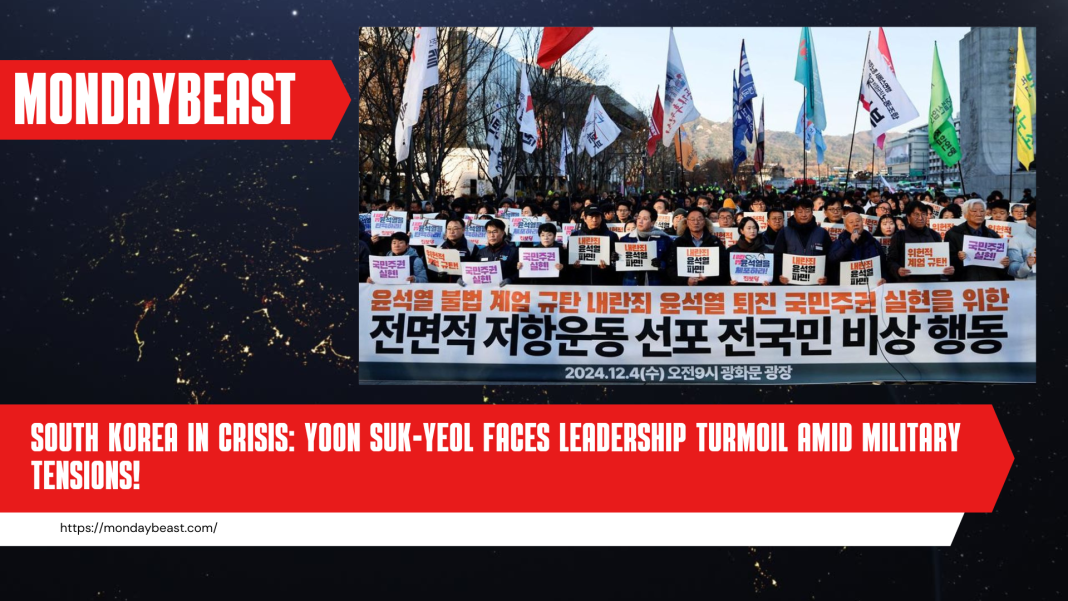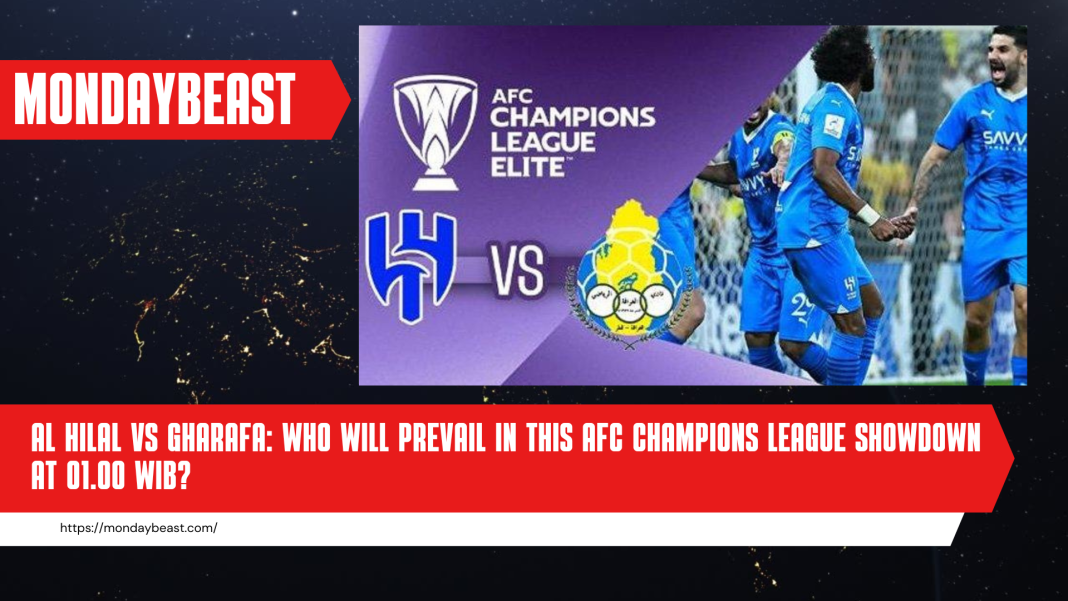Emergency Military Rule Shakes South Korea
On a night that many will not forget, South Korea witnessed a shocking clash. Parliament members found themselves physically confronting military police. This was not staged chaos; it was real and urgent. A sudden announcement of emergency military rule by President Yoon Suk-yeol sent shockwaves through the nation.
Video footage caught the intensity. Lawmakers pushed back as soldiers attempted to enter parliament. It was a surreal scene, blending the political with the militaristic. How did things escalate to this point?
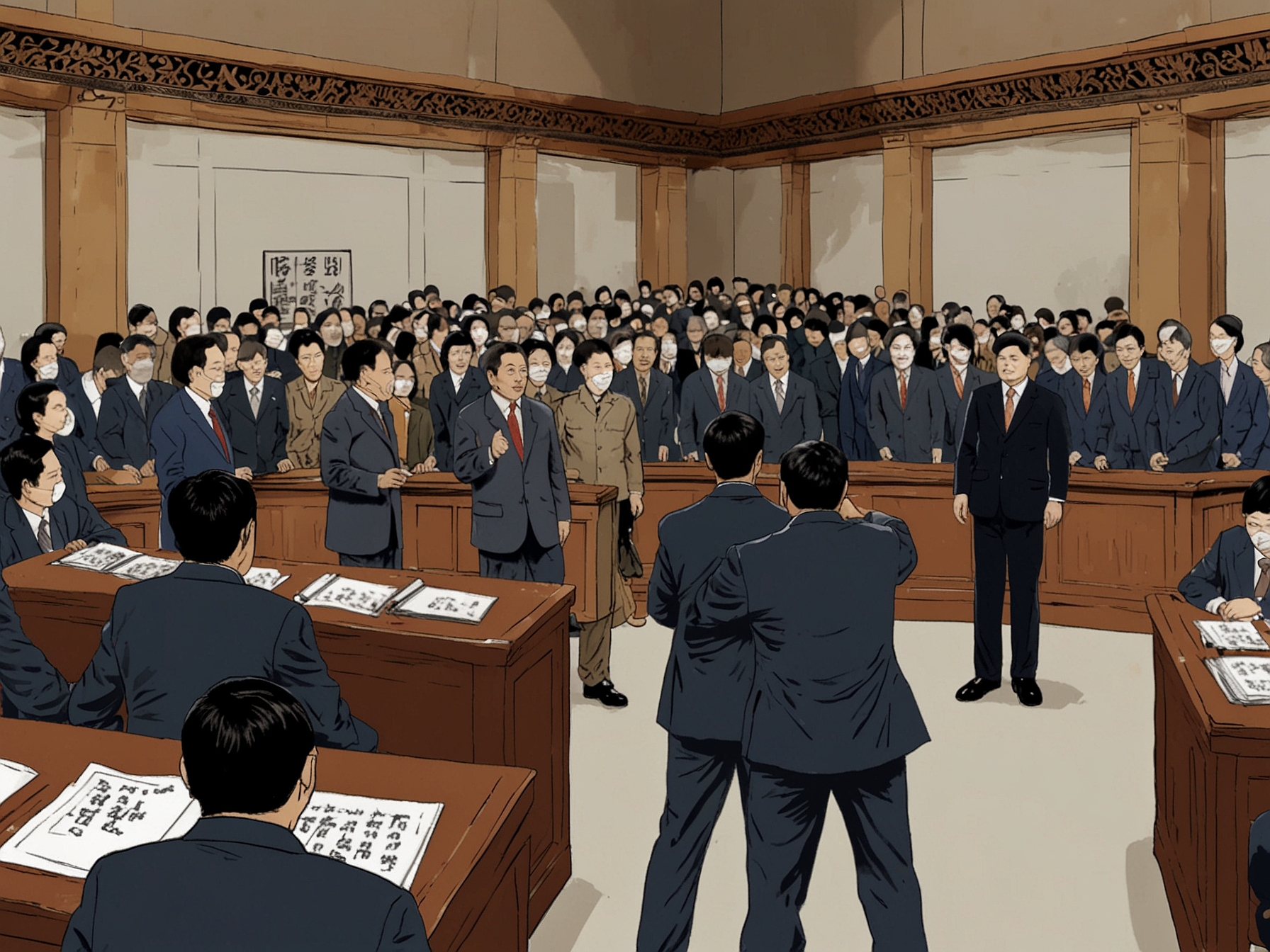
Under the pressure of an opposition-dominated parliament, Yoon’s decision came after widespread dissent. Just hours later, he lifted the emergency status. Can such rapid changes be a sign of instability in leadership?
Yoon Suk-yeol: A Polarizing Figure
To understand the current crisis, we need to look deeper into Yoon Suk-yeol’s presidency. Emerging from the ranks of the judiciary, the former prosecutor vowed to revitalize South Korea. His 2022 inaugural speech echoed promises to return power to the people.
Yet, the reality has been starkly different. Approval ratings dipped alarmingly low, reflecting a nation dissatisfied with its leader’s performance. Can a president regain the trust of a skeptical public?
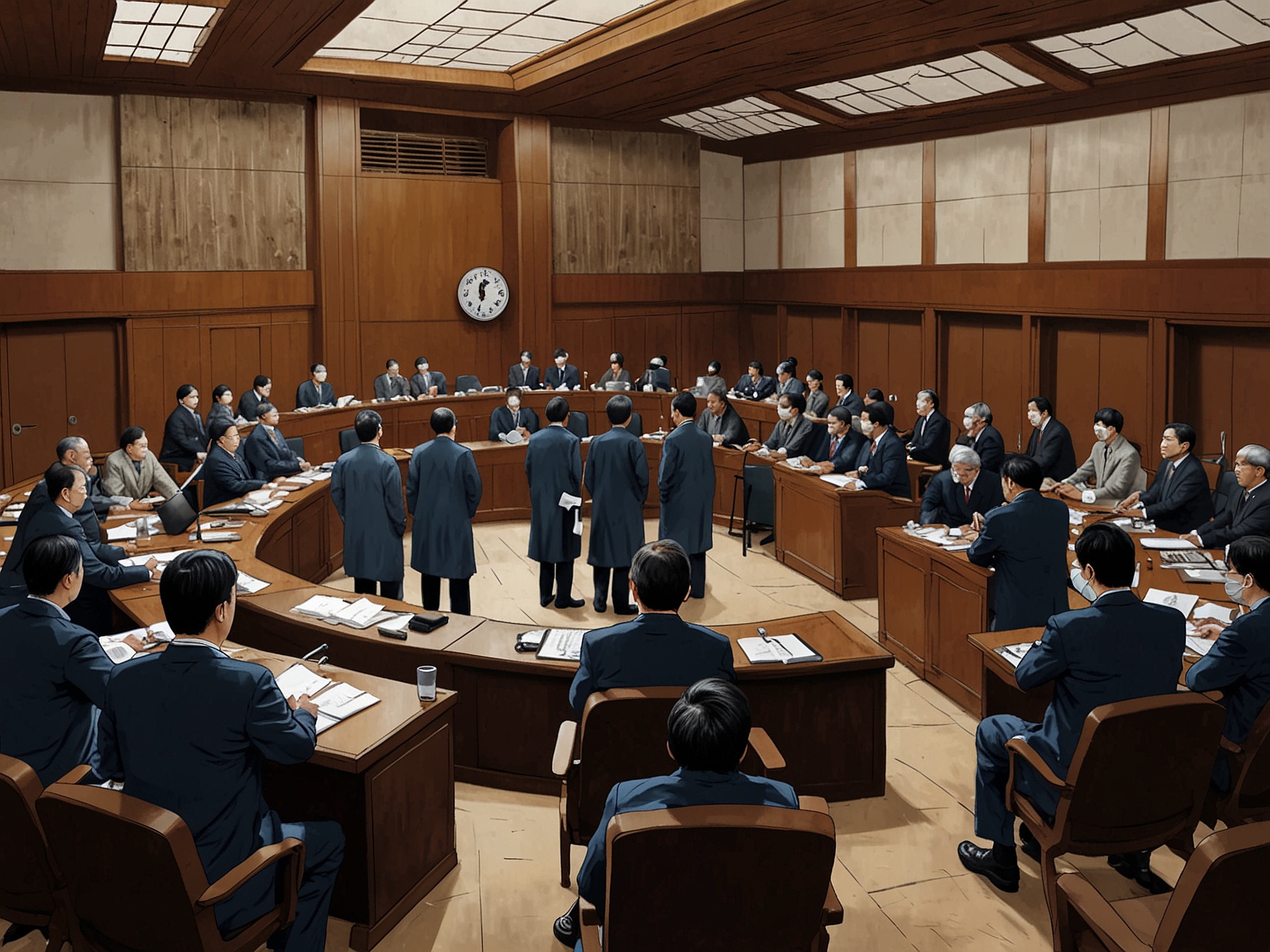
His struggle in office is compounded by a parliament that does not favor him. Yoon’s past as a crusading prosecutor made him a controversial candidate. With no prior political experience, he stepped into a complex world that quickly overwhelmed him. How do leaders adapt in such turbulent waters?
Political Dysfunction in the Spotlight
Since taking office, every major step has been scrutinized. His attempts to pass legislation faced daunting challenges. As of early 2024, barely 29 percent of his proposed bills made it through parliament. This failure highlights a persistent gap between intent and action.
He turned to executive power, using vetoes more often than predecessors. What does this say about his governance style? Critics argue it reflects desperation rather than strong leadership.
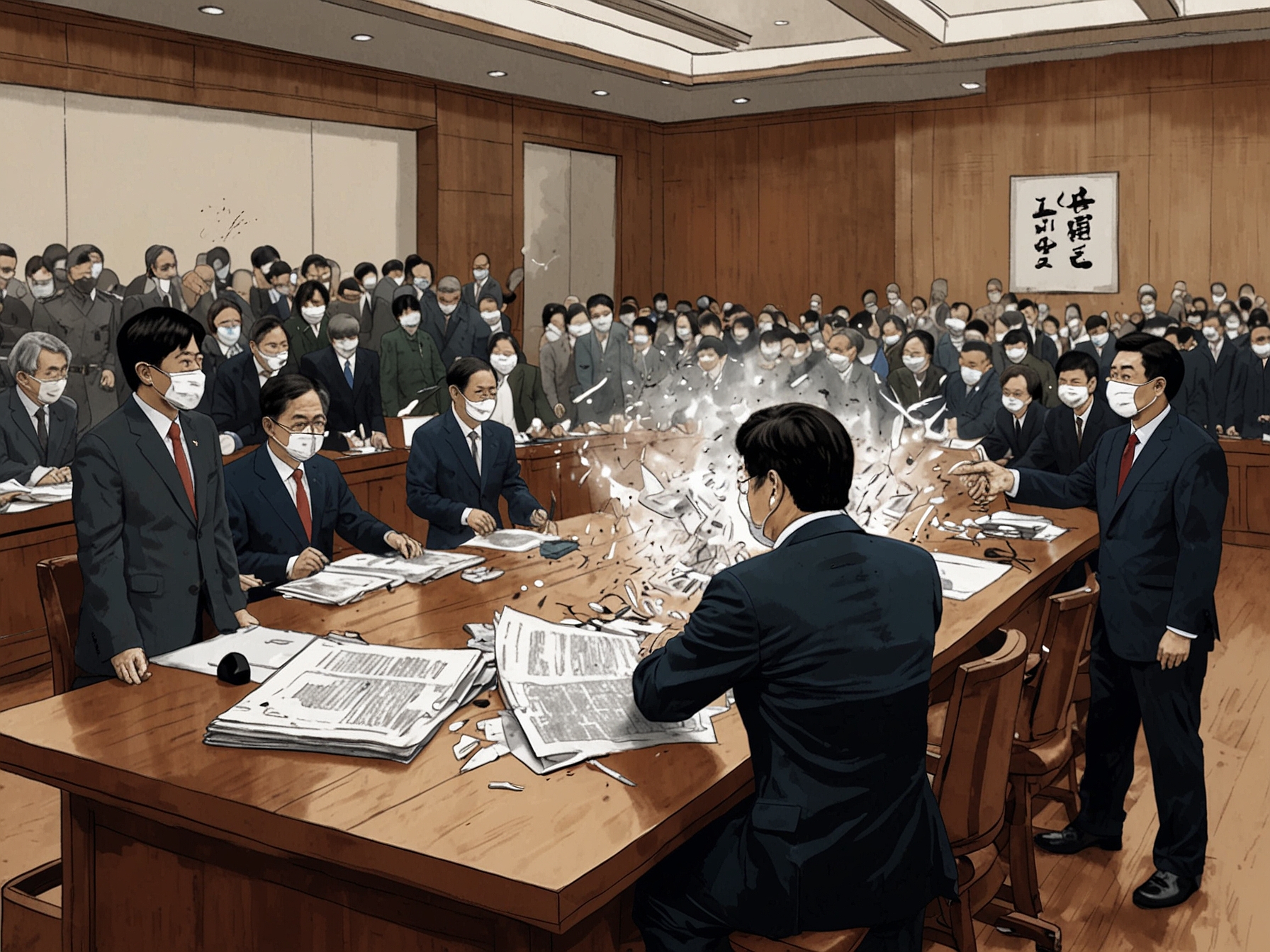
On the other hand, his supporters may argue that navigating opposition politics is inherently tough. Isn’t it expected in a dynamic democracy? As members of the opposition rallied against him, Yoon’s challenges seemed to multiply.
Public Sentiment: A Whirlwind of Discontent
Where does this leave South Koreans? Frustration is palpable. The desire for a government that resonates with ordinary lives contrasts sharply with the reality of political theater. Numerous missteps have driven citizens to protest, calling for change.
Yoon’s controversial plan to move the presidential office to the Ministry of Defense sparked outrage. Many saw it as a disconnect from everyday life. Isn’t leadership about connection?
Opposition has been vocal about education policy changes. His plan to alter school starting ages was met with overwhelming backlash. This indicates a serious issue: Are leaders really listening to the people?
Looking Ahead: Uncertain Paths
What lies ahead for Yoon and South Korea? The military clash may be seen as a low point. With ongoing political division, can real reform take place? The abrupt lifting of military rule raises questions about future governance.
Yoon’s next steps are crucial. Will he adapt or remain in opposition? The political landscape is unpredictable. One thing is clear: South Korea’s citizens are watching closely.
In these times of turmoil, empathy is needed more than ever. Conflict often leaves scars that can last decades. How will history remember this era of South Korea?
The relationship between government and citizen must be repaired. For trust to be rebuilt, leaders must be transparent and accountable. Can South Korea find that balance? Only time will tell.

